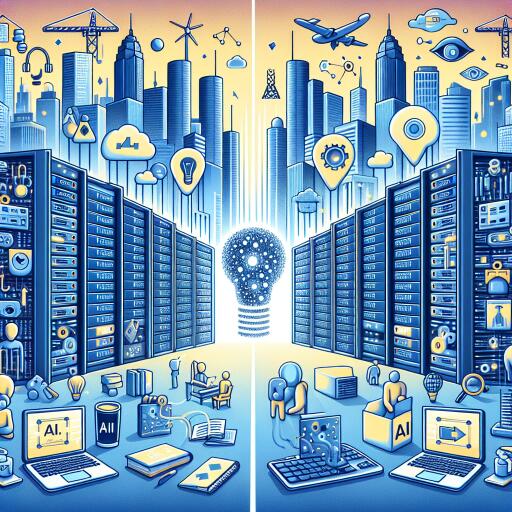AI and Technology: Redefining the Job Landscape
The relentless march of technology and artificial intelligence (AI) portends a seismic shift in the job market, one that is poised to redefine the roles of millions of professionals worldwide, including a significant impact on India’s burgeoning IT sector. A stark reminder of the evolving workforce requirements amid increasing automation and AI integration, the scenario necessitates a reimagining of skill sets and educational methodologies to prepare for future demands.
Historically, technology advancements have always been a double-edged sword, presenting both opportunities for innovation and the risk of obsolescence for certain job roles. Recall the era before widespread Content Management Systems (CMS) – a time when webmasters skilled in HTML were in high demand. This specialization faded as CMS platforms became ubiquitous, signaling a broader trend of technological evolution outpacing job roles tethered to older technologies. Similarly, today, AI and automation stand to accelerate these displacements across a wider swath of the job market.
A report by McKinsey has thrown a stark light on the future, estimating that up to 400 million global workers could be replaced by AI, marking an unprecedented shift in the global workforce. In places like India, where the youth population is a critical demographic, this presents a unique set of challenges, especially when it comes to integrating millions of new entrants into the workforce amidst a landscape of rapidly diminishing traditional job roles.
The Silver Lining: Job Creation and the Way Forward
Despite the grim prospects of job displacement, the evolution of technology is equally a harbinger of job creation. Fields such as healthcare, infrastructure development, and green energy, to name a few, are expected to burgeon, potentially generating upwards of 800 million new roles worldwide. However, these newly minted positions demand a skill set far removed from the routine tasks prone to automation. They require a blend of creativity, critical thinking, and innovation—qualities that AI, for all its capabilities in data processing and pattern recognition, cannot emulate.
India’s thriving startup ecosystem, particularly in deep-tech domains, illustrates the insatiable demand for innovative thinking and problem-solving abilities. With thousands of startups in operation and more on the horizon, the message is clear: the future belongs to those who can innovate, create, and solve complex, non-routine problems.
Transforming Education for the Future
The imminent shift in the workforce landscape underscores the imperative for educational institutions to adapt. The focus must pivot from traditional, theory-heavy curricula to more hands-on, experiential learning models. Such approaches nurture not just technical prowess but also critical cognitive skills and soft skills like empathy and teamwork, preparing students not just for jobs, but for a lifetime of adaptable learning.
In this context, the role of the government and educational policymakers becomes crucial. Increased investment in education, a proactive approach to identifying and bridging future skill gaps, and a paradigm shift towards more engaged and practical learning methodologies are imperative. This holistic development framework will ensure that the workforce of tomorrow is not only technically adept but also versatile, creative, and cognitively skilled.
Embracing the Change
As we stand on the cusp of a new era, it’s clear that reliance on conventional IT skills will no longer suffice. Tomorrow’s professionals must be polymaths, blending knowledge of software with a keen understanding of hardware and niche industrial applications. Beyond technical skills, nurturing cognitive abilities, creativity, and communication skills will be key to thriving in an AI-augmented job landscape.
AI might streamline or automate tasks, but the essence of innovation, the leap of intuition, and the exploration of the uncharted will always remain human endeavors. Our collective challenge is to foster a generation equipped not only to navigate the challenges posed by technological advancements but also to leverage these technologies in solving the pressing issues of our times. In doing so, we will not only secure our place alongside AI but ensure that we continue to guide its trajectory in enriching and empowering human endeavors.
The future, therefore, is not about competition with AI but about coevolution, ensuring that as technology advances, we do too, in our creativity, our problem-solving capabilities, and our innate human spirit.
